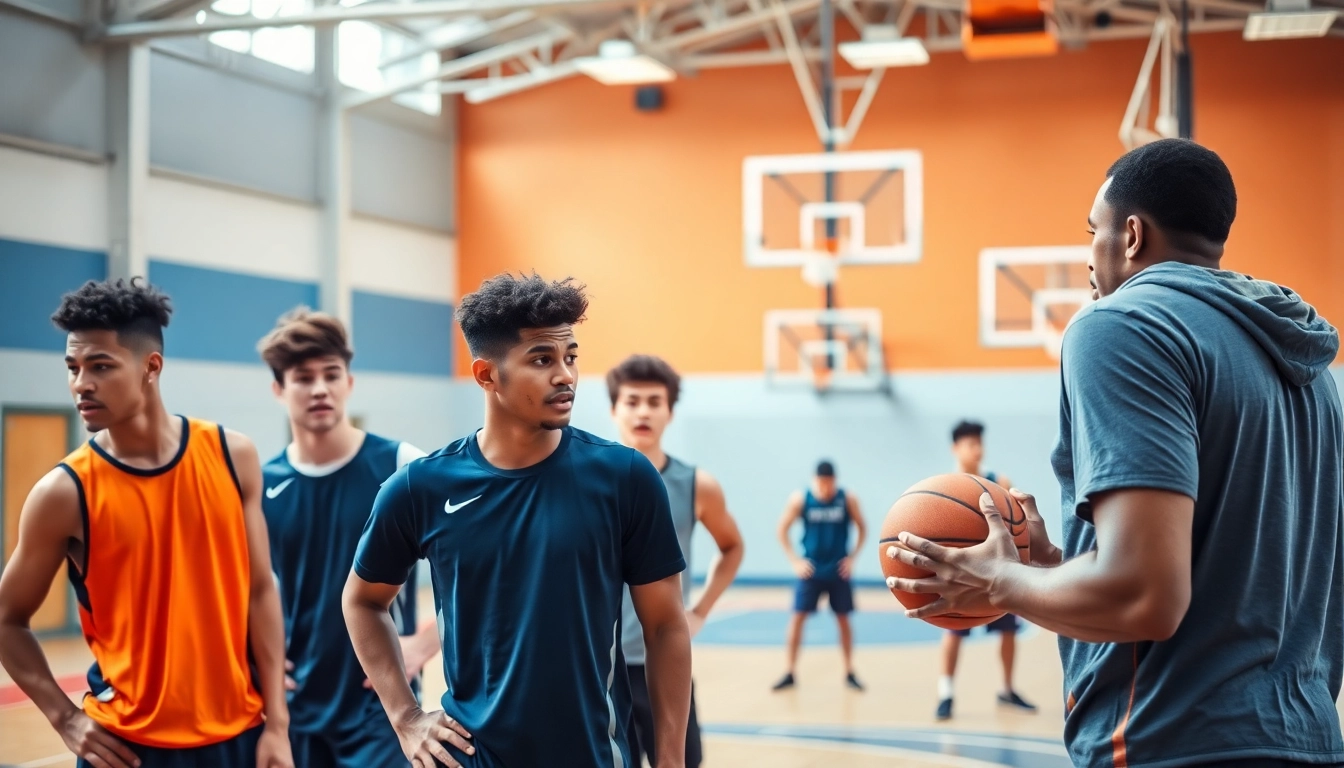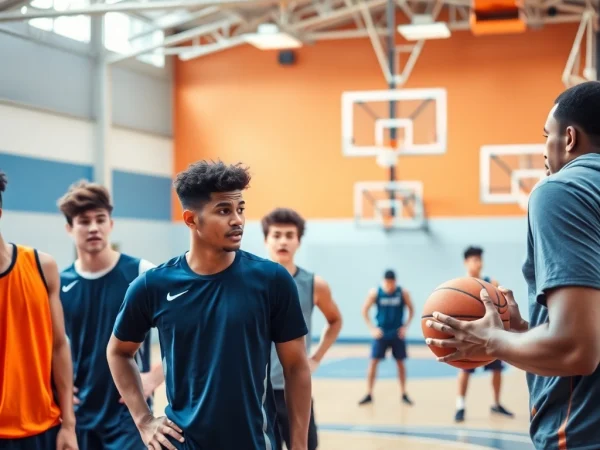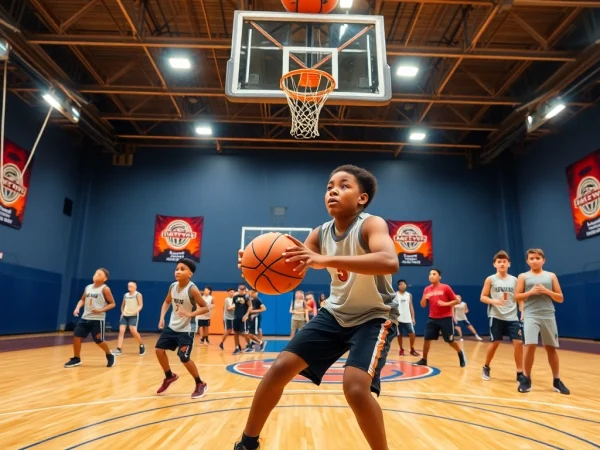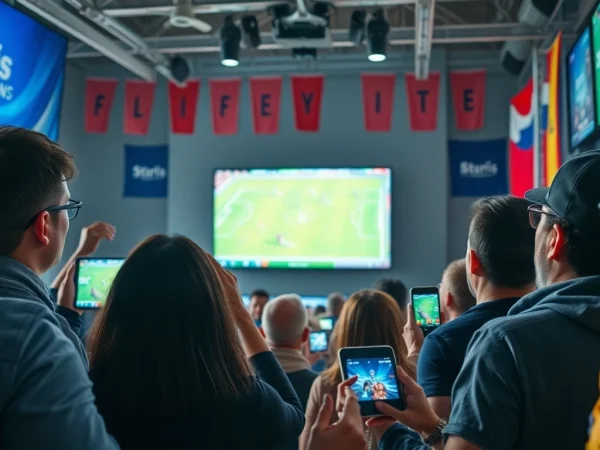Enhance Your Skills with Local Basketball Training Programs Near Me
Understanding Basketball Training Programs Near Me
Basketball training programs play a fundamental role in developing athletes, enhancing their skills, and preparing them for competitive environments. Whether you are a novice eager to learn the fundamentals or an advanced player seeking to refine your gameplay, finding the right training program nearby can significantly impact your progress. With a variety of training options available, knowing what to look for is crucial. Here’s an in-depth exploration of basketball training programs available in your local area, designed to help you make informed choices and advance your skills efficiently. For those looking for personalized assistance in finding the best local options, consider searching online for basketball training programs near me.
What Are Basketball Training Programs?
Basketball training programs encompass a range of organized activities aimed at improving players’ skills, understanding of the game, and overall physical fitness. These programs can vary widely in format but generally include individual skill development, competitive team training, and specialized camps or clinics. Coaches with significant experience typically run these programs, focusing on one or all aspects of the game—shooting, passing, dribbling, defense, and conditioning. Training programs can cater to various ages and skill levels, ensuring that every player finds the right fit for their competitive journey.
Benefits of Training Locally
Opting for local basketball training programs offers several benefits:
- Convenience: Proximity to training facilities means reduced travel time and greater ease of access, allowing for consistent attendance.
- Community Engagement: Training locally helps athletes build connections within their community, leading to supportive networks among players and families.
- Favorable Costs: Local programs may be more affordable than traveling to elite academies, providing value while still offering quality training.
- Familiar Environment: Practicing in familiar facilities can help players feel more comfortable, enabling them to perform their best during sessions.
How to Choose the Right Program
With numerous basketball training options available, selecting the right program can be daunting. Consider the following criteria when making your choice:
- Skill Level: Ensure the program matches your current skill level, whether you are a beginner, intermediate, or advanced player.
- Coaching Credentials: Research coaches and their qualifications, including their playing experience and coaching certifications.
- Facility Quality: Visit the location to examine the facilities, training equipment, and overall environment.
- Reviews and Testimonials: Look for online reviews or testimonials from past participants to gauge satisfaction and success rates.
- Program Structure: Understand the structure, including session frequencies, group sizes, and progression timelines.
Types of Basketball Training Programs Available
Individual Skill Development Sessions
Individual skill development sessions provide personalized training and focus on specific skills tailored to each player’s needs. These sessions can be one-on-one coaching with an experienced trainer or small group sessions that allow for increased individual attention. Players might work on:
- Shooting Techniques: Fine-tuning shooting form, including balance, follow-through, and shot mechanics.
- Ball Handling: Developing dribbling skills, passing accuracy, and overall control of the basketball.
- Defensive Skills: Enhancing footwork, positioning, and techniques for guarding opponents effectively.
- Physical Conditioning: Focusing on agility, speed, and strength training to improve overall athletic performance.
Group Camps and Clinics
Group camps and clinics typically feature larger groups of players and can run for a few days to several weeks. They often focus on general skills development and may include:
- Skill Drills: Varied drills that promote teamwork, passing, shooting, and overall game strategies.
- Competitive Scrimmages: Opportunities to implement skills in practice games, promoting competitive spirit and sportsmanship.
- Guest Coaches: Many clinics invite experienced coaches or former players to lead special sessions, enriching the learning experience.
- Social Interaction: Participating in group settings enhances social skills and friendships among fellow athletes.
Competitive Team Training
This type of training focuses on preparing players for competition, often through team-based drills and strategic gameplay. Teams may include school teams, club teams, or AAU teams. Key aspects of competitive team training typically involve:
- Team Cohesion: Building chemistry among team members, enhancing communication on and off the court.
- Strategy Development: Learning offensive and defensive systems to maximize effectiveness during competitions.
- Situational Drills: Practicing specific game scenarios to prepare for high-pressure situations.
- Player Roles: Understanding each player’s role within the team, fostering a better sense of purpose and contribution.
Key Features of Effective Programs
Coaching Expertise and Experience
The quality of coaching can significantly affect the success of a training program. Experienced coaches bring extensive knowledge of the game, teaching techniques, and mentorship to young athletes. When selecting a program, consider:
- Coaching Background: Look for coaches with a proven track record in player development and competitive success.
- Coaching Philosophy: Understand their teaching style and whether it aligns with your learning preferences.
- Continuous Learning: Effective coaches should stay updated on training techniques and innovations in the sport.
Program Structure and Flexibility
The organization of a training program is vital for catering to players’ needs. Look for programs which provide:
- Structured Curriculum: Well-defined objectives and goals to track progression and skill acquisition.
- Flexible Scheduling: Options that accommodate varying schedules, allowing for more consistent attendance.
- Varied Activities: Diverse training methods to keep sessions engaging and address multiple skill areas.
Performance Tracking and Development Plans
An effective training program should include mechanisms for assessing progress. This can be achieved through:
- Evaluation Sessions: Regular performance reviews to analyze strengths and areas for improvement.
- Goal Setting: Collaborative development of personal development plans to guide player growth.
- Feedback Mechanisms: Constructive feedback systems that encourage players to refine techniques.
Finding the Best Basketball Training Programs Near Me
Utilizing Online Resources and Reviews
The internet is a wealth of resources when it comes to locating local basketball training programs. Utilize platforms like:
- Search Engines: Simple searches such as “basketball training programs near me” can yield a variety of options.
- Social Media: Platforms like Facebook and Instagram can provide real-time feedback and reviews about local training camps.
- Local Websites: Checking local community centers or sports clubs can uncover hidden gems in training programs.
Visiting Local Gyms and Training Centers
Another effective way to discover quality training programs is to physically visit local sports facilities. When you go, consider:
- Facility Tours: Request tours of training areas to assess the environment and equipment quality.
- Staff Engagement: Discuss training philosophies and available programs with staff members.
- Trial Sessions: Some facilities may offer trial classes so you can experience firsthand what to expect.
Networking with Other Players and Coaches
Building a network within your local basketball community can provide valuable insights. Engage with:
- Players: Fellow teammates often have knowledge of programs and training they have participated in.
- Coaches: Asking personal coaches for recommendations outside their own program can lead to valuable insights.
- Community Events: Attending local games and events creates opportunities to ask questions and gather feedback.
Maximizing Your Training Experience
Setting Personal Goals and Objectives
Before even starting a basketball training program, it’s essential to set SMART (Specific, Measurable, Achievable, Relevant, Time-bound) goals. Examples might include:
- Improving free throw percentage by 15% over a season.
- Increasing vertical leap within three months using specific drills.
- Developing a personal workout routine to enhance shooting skills.
Incorporating Feedback and Reflection
Regular reflection on performance can significantly enhance learning. Players should take time to consider:
- Weekly Reviews: Analyze practice effectiveness and areas needing work after training sessions.
- Open Communication: Discuss performance with coaches and seek constructive feedback.
- Setting New Goals: Based on reflections, adjust current goals to remain challenged yet achievable.
Staying Consistent and Committed
Consistency is the backbone of skill development in basketball. To ensure commitment:
- Routine Development: Create a training schedule that aligns with personal and academic responsibilities.
- Accountability Partners: Find a training partner with similar goals to motivate each other through the process.
- Intrinsically Motivated: Engage in activities that keep your passion alive, such as watching games or participating in friendly matches.



